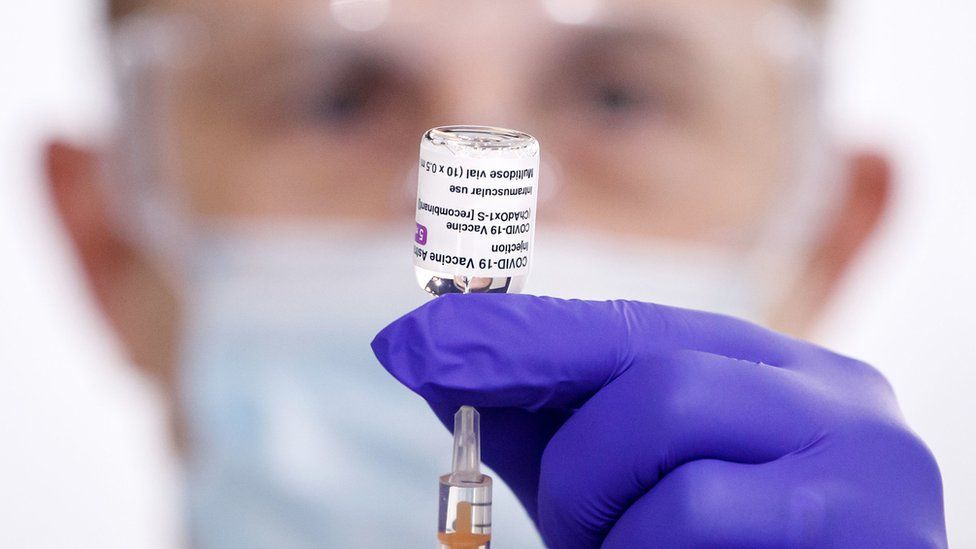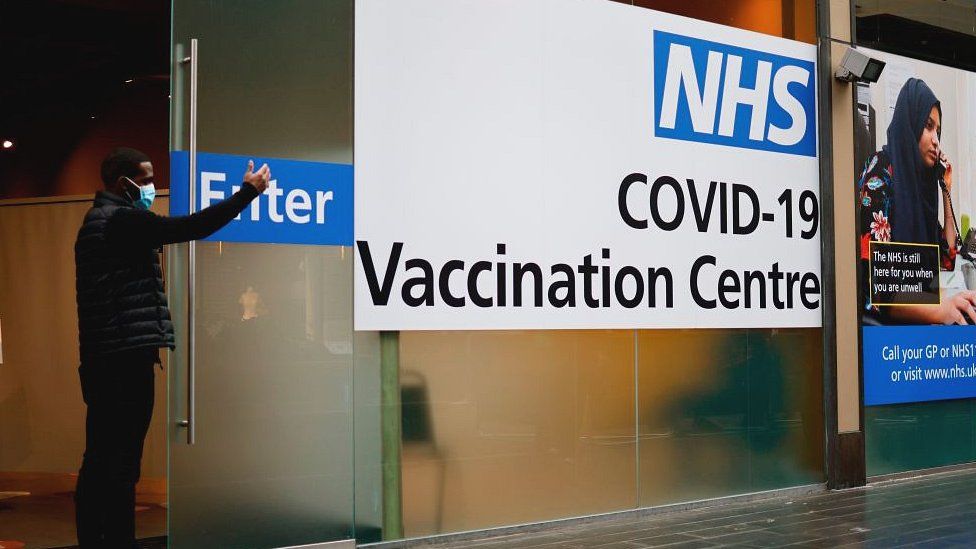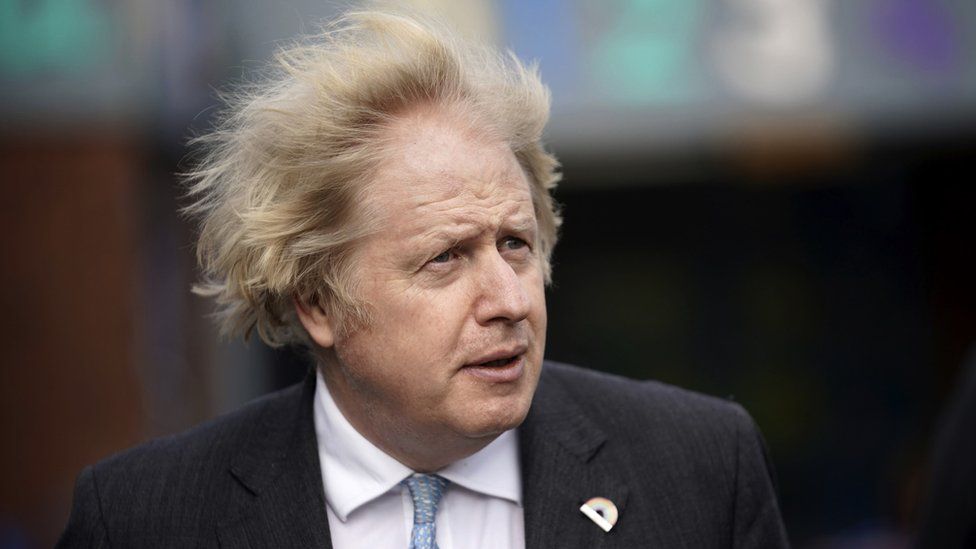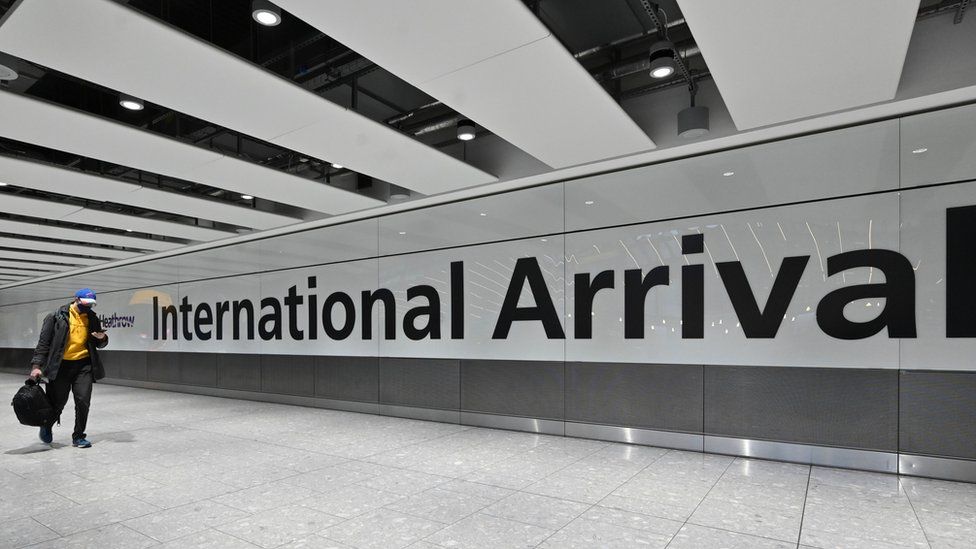
A single shot of either the Oxford-AstraZeneca or the Pfizer-BioNTech Covid jab reduces the chance of needing hospital treatment by more than 80%, an analysis in England shows.
The Public Health England data showed the effect kicked in three to four weeks after vaccination.
It was based on people aged over 80 who were the first to receive the jab.
Government scientists hailed the result, but stressed that two doses were needed for the best protection.
It comes after similar findings were published by Scottish health authorities last week, which they hailed as "spectacular".
Health Secretary Matt Hancock told a Downing Street briefing on Monday the latest vaccine results were "very strong".
He added: "They may also help to explain why the number of Covid admissions to intensive care units among people over 80 in the UK have dropped to single figures in the last couple of weeks."
Also speaking at the news conference, England's deputy chief medical officer - Prof Jonathan Van-Tam - said the data offered a glimpse of how the vaccine programme "is going to hopefully take us into a very different world in the next few months".
But he said it was "absolutely critical" that second doses "are still part of the course of immunisation against Covid-19 and no less important".
Prof Van-Tam stressed there was a "significant likelihood" that a second dose of a vaccine would "mature your immune response, possibly make it broader and almost certainly make it longer than it would otherwise be in relation to a first dose only."
More than 20 million people in the UK have had their first dose of a vaccine - over a third of the adult population.
Meanwhile, another 104 deaths within 28 days of a positive coronavirus have been reported in the UK, and a further 5,455 new cases, according to the latest figures.

The PHE data, which has not been peer reviewed, also suggested the Pfizer vaccine, which started being rolled out a month before the AstraZeneca vaccine, leads to an 83% reduction in deaths from Covid. This was based on people over the age of 80 who had died.
The data also showed vaccination cuts the risk of people over 70 developing any Covid symptoms by around 60%, three weeks after an initial dose.
Prof Van-Tam said the decision to give the AstraZeneca vaccine to older people was "clearly vindicated".
Some European nations have refused to give it to the over 65s because data from the trials was mainly on its effect among younger adults.
Prof Van-Tam said the judgement made by the UK authorities was that it was simply "not plausible" the vaccine would only work on younger adults.
He said other countries would doubtless be "very interested" in the data coming out of the UK.
Dr Mary Ramsay, Public Health England's head of immunisation, said there was growing evidence that the vaccines were working to reduce infections and save lives.
"While there remains much more data to follow, this is encouraging and we are increasingly confident that vaccines are making a real difference," she said.
However, more evidence is needed to know how well the vaccines protect against the Brazil variant that has recently been identified in the UK.
This variant has a mutation - E484 - that could reduce some of the effectiveness of the vaccines.

- LOOK-UP TOOL: How many cases in your area?
- LOCKDOWN RULES: What are they and when will they end?
- YOUR QUESTIONS: We answer your queries
- GLOBAL SPREAD: How many worldwide cases are there?
- TREATMENTS: What progress are we making to help people?

It was announced on Sunday that six new variant cases - three in England and three in Scotland - had been found through testing.
Health officials have been able to contact all but one of these people. The whereabouts of the remaining individual is unknown as they did not complete their test registration card.
It has prompted an appeal for anyone without a result from a test on 12 or 13 February to come forward immediately by calling 119.
The health secretary has denied that delays in imposing quarantine hotel measures on travellers to the UK put lives at risk, as officials continue to seek the individual.
Mr Hancock said there was "no evidence" the infected person had not followed home quarantine rules.
Earlier, Prime Minister Boris Johnson said the UK has "one of the toughest border regimes anywhere in the world for stopping people coming in to this country who may have variants of concern".


https://news.google.com/__i/rss/rd/articles/CBMiKmh0dHBzOi8vd3d3LmJiYy5jby51ay9uZXdzL2hlYWx0aC01NjI0MDIyMNIBLmh0dHBzOi8vd3d3LmJiYy5jby51ay9uZXdzL2FtcC9oZWFsdGgtNTYyNDAyMjA?oc=5
2021-03-01 20:37:02Z
CBMiKmh0dHBzOi8vd3d3LmJiYy5jby51ay9uZXdzL2hlYWx0aC01NjI0MDIyMNIBLmh0dHBzOi8vd3d3LmJiYy5jby51ay9uZXdzL2FtcC9oZWFsdGgtNTYyNDAyMjA







